SUMMARY
This is AI generated summarization, which may have errors. For context, always refer to the full article.
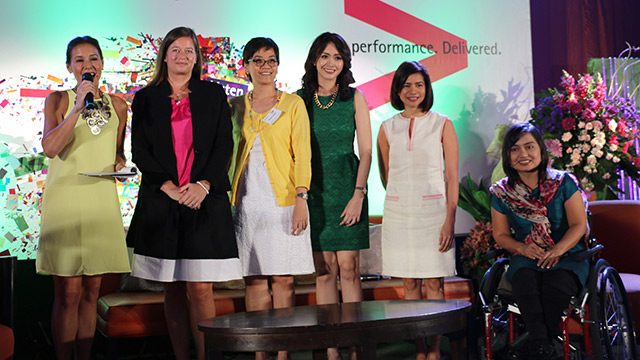
MANILA, Philippines – New research from Accenture reported that while nearly all (96%) global professionals consider themselves to be good listeners, the vast majority (98%) spend part of their workday multitasking.
Almost two-thirds (64%) say that listening has become significantly more difficult in today’s digital workplace.
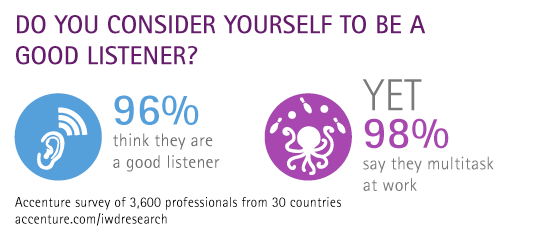
The research, #ListenLearnLead, which surveyed 3,600 professionals from 30 countries including the Philippines, found that 8 in 10 respondents say they multitask on conference calls with work emails (66%), instant messaging (35%), personal emails (34%), social media (22%), and reading news and entertainment (21%).
While 66% of respondents agree that multitasking enables them to accomplish more at work, more than a third (36%) say many distractions prevent them from doing their best, resulting in a loss of focus, lower-quality work, and diminished team relationships.
When asked what interrupts their workday, most respondents cited telephone calls (79%) and unscheduled meetings/visitors (72%) more than twice as often as instant messaging (30%) and texting (28%).
Those who listen actively to calls typically either need something from the call or are required to lead, participate in, or follow up on the discussion.
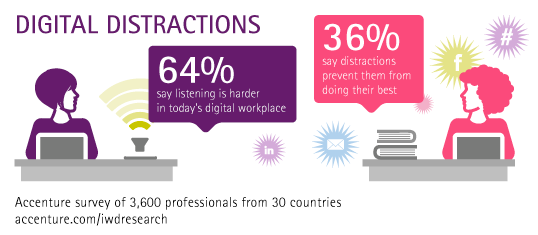
Multitasking Filipinos
Furthermore, almost 8 out of 10 Filipino respondents (79%) spend half their day multitasking, higher than the global average of 56%. While 4 in 10 Filipinos spend more than 75% of their day multitasking.
“Digital is changing everything, and new technologies will continue to present challenges and opportunities,” said Monina Cacayan, Managing Director in Accenture Operations and Inclusion & Diversity sponsor in the Philippines.
Technology a help and a hindrance
The research also found that the majority of respondents (58%) believe technology enables leaders to communicate with their teams easily and quickly, and almost half cite additional benefits, such as flexibility for teams to work anywhere/anytime (47%), and increased accessibility (46%).
Accessibility, however, is seen as both an aid and a hindrance to effective leadership.
More than 6 in 10 women (62%) and more than 5 in 10 men (54%) view technology as “overextending” leaders by making them too accessible. Almost 7 out of 10 (68%) Filipinos who participated in the Accenture survey attest to this.
Meanwhile, all respondents agree that among the top challenges leaders face today are information overload (55%) and rapidly evolving technology (52%).
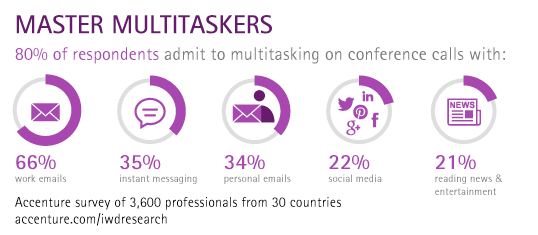
More women CTOs
Additionally, more than 7 in 10 respondents (71%) believe the number of women Chief Technology Officers (CTO) will grow by 2030. In the Philippines, a significantly higher number of respondents (85%) agree that more doors will open for women CTOs in the next 15 years. More than half of respondents (52%) say that their companies are likewise preparing more women for senior management this year than last year.
“Whether you are in charge of a meeting, an employee group, a volunteer event or a major project or account, there is always an opportunity to lead,” said Cacayan.
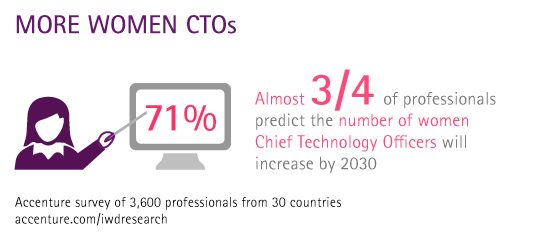
Other insights
Listening skills : Respondents value good listening skills. In particular, thinking before speaking (54%), asking questions (49%), and taking notes (49%) are viewed as most important. The research also compared responses across 3 generations and found that 64% of millennials said they spend more than half their day multitasking, compared to 54% of Gen Xers and 49% of baby boomers.
Workplace learning : A full 80% of respondents agree on-the-job training is the most effective form of learning in the workplace and more important than formal training (cited by 66%). The majority (85%) value their company training: 42% see it as an opportunity, 23% view it as a requirement, and 32% see it as both.
More than half (59%) say company training has helped them get promoted or further expand their role.
Leadership: Respondents believe that, to advance, leaders should accept new responsibilities (54%), continue learning (48%), and mentor others (42%). Of these areas for improvement, majority (70%) of Filipino employees feel that continuous learning is an important trait of leaders.
At the same time, when asked about the main obstacles to successfully lead a team, respondents cited lack of interpersonal skills (50%), communication skills (44%) and role clarity (39%).
Soft skills: Despite the belief that softer skills are the most important leadership skills, only 38% of respondents say their companies offer “soft skills” training, compared to 53% who say their company offers technical-skills training.
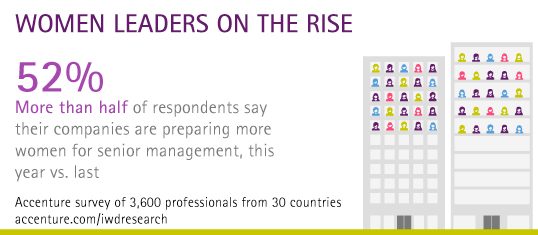
Pay and promotions: According to this year’s survey, an equal number (54%) of women and men asked for a promotion, up significantly from 47% of men and just 40% of women the prior year.
Additionally, more millennials asked for a raise (68%) and a promotion (59%) this year than did their Gen X counterparts (64% and 52%, respectively) and baby boomers (59% and 51%, respectively).
Job satisfaction: Job satisfaction decreased to 44% from 52% in 2013. Feeling underpaid is the top reason, but “hours are too long/workload too heavy” jumped from 20% last year to 31% this year.
Millennials are more likely to say their hours are too long (33%) compared to baby boomers (28%) and Gen Xers X (30%).
Stay-at-home parents: Half of all respondents (51%) said they would quit their jobs and be stay-at-home parents if they could afford it financially, up significantly from last year, when 37% reported this. – Rappler.com
Add a comment
How does this make you feel?





There are no comments yet. Add your comment to start the conversation.